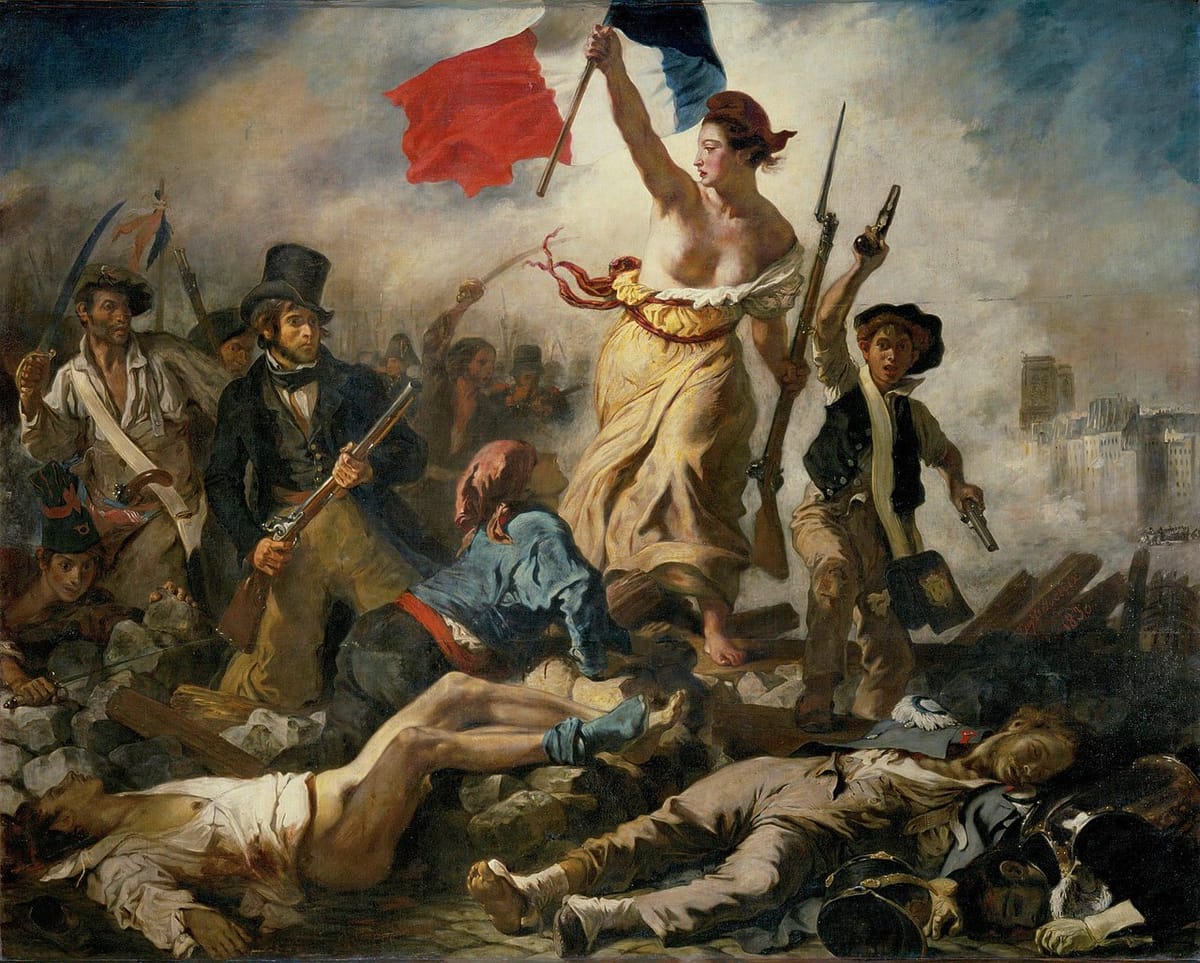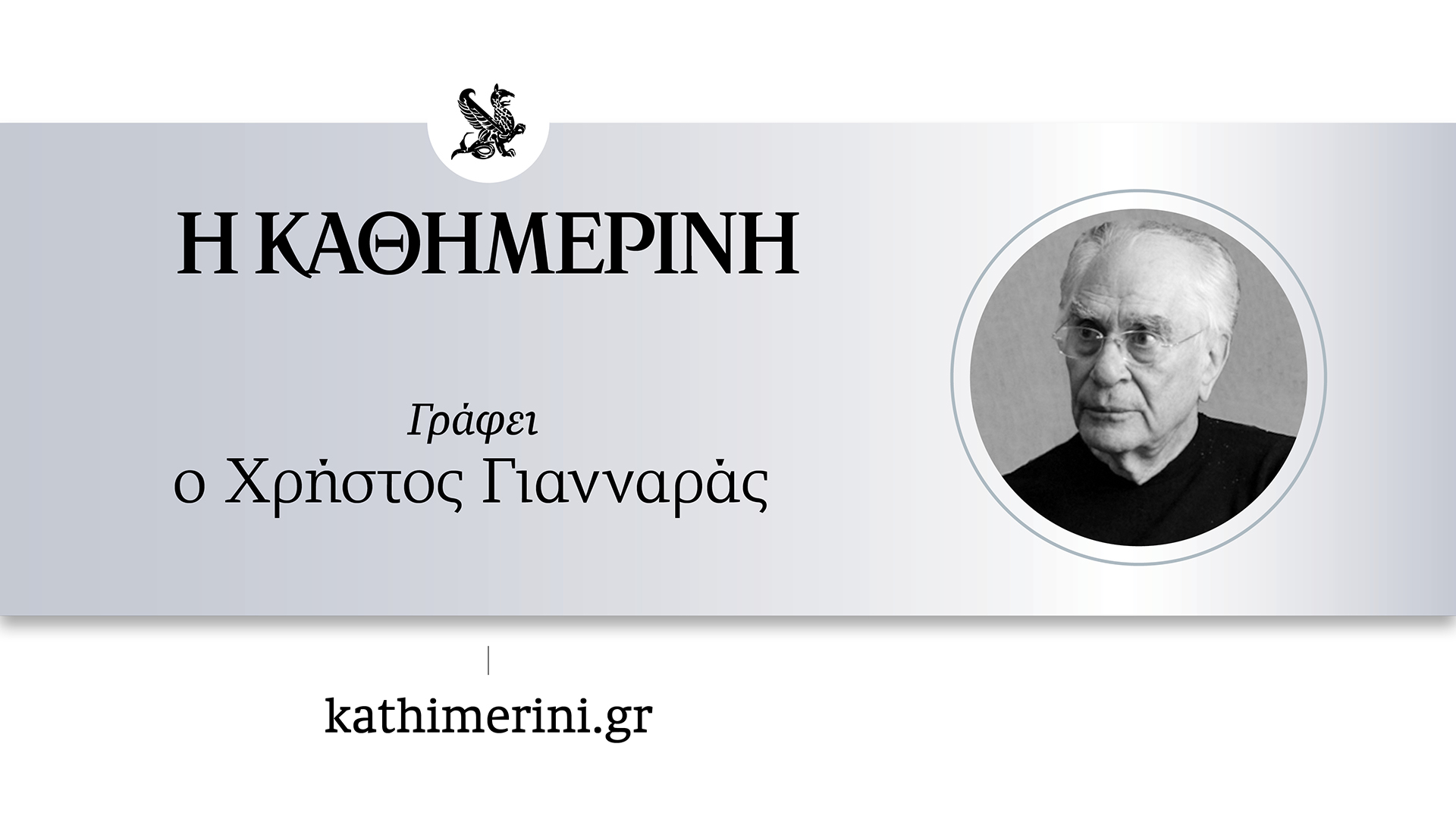Realism and Utopia in Politics (by Christos Yannaras)
"That singularity is empirically and immediately accessible to us, while remaining objectively indeterminate, utopian."

In his 2023 essay for the Greek newspaper 'Kathimerini', Eastern Orthodox theologian Christos Yannaras offers his perspective on what he sees as the failure of utopian ideologies to account for the relational and personal character of truth and becoming, inquiring into the possibility of a genuine utopia, the utopia of the person. Rooted in a communal understanding of truth as inherited from the Greek philosophical tradition and having drunk deeply from the Heideggerian well, Yannaras presents truth as linguistically inexhaustible and resistant to acts of intellectual locating, an empirically accessible event of direct verification that always exceeds its manifestations, and provides the ground for authentic relationality and orientation to the real.
"I want to talk about those utopias, that have no relation [either] with abstract ideological projections of psychological desires, or with illusory substitutes of reality. The global peace, the classless society, the eternal Hellas, the science that will solve all of man's problems, are certainly visions that have emboldened many people, maybe even to the point of self-sacrifice. They do not cease however to echo the flight towards the fictitious and the groundless, the need for blind obsession with an irrational determinism of optimism.
I am interested in the exciting utopia (ου-τόπος; [no-place]) of those facets of human experience that are unruly to being located, while remaining accessible to direct attestation. Groundless data that constitute the reality of our life, verifiable by all of us, without being domesticable to fixed, definite monstrance, to objective delimitation. [A] realism of utopia or [an] indeterminacy of existential becoming.
[The] first example [is] language: A reality of empirical immediacy and yet completely utopian. Its genetic origins and the dynamic of its evolutions [are] inaccessible to consistent location. Who shapes language, where and how is our linguistic expression enriched or impoverished. Grammar and syntax? Grammar and syntax do not entrench language to definitional constants, they attempt only to report and systematise the given dynamic of its function, to facilitate the most efficient use of it.
Before modern Physics assured us that the relation of observer and observed constitutes reality, that utopian indeterminacy, absolutely realistic, was attested by social experience. This is why the foundational epistemological principle in the tradition of the Greeks was apophaticism: the refusal to exhaust truth in its formulation. Truth is the empirical immediacy of relation, that is only signified, it is not substituted by the comprehension of linguistic signification. The validation criterion of linguistic signification is only social, when all are of the same opinion and each bears witness,[1] [it is] not a criterion of authority or method.
The utopia of social relations gives birth to the dynamic of historical permutation, the institutional arrangements of collective living. The relations of production and exchange, despite the efforts to arrange them mechanistically, always maintain a utopian indeterminacy, untamed. The genesis of the rational subject itself is not a product of biology, but a product of relation. The relation of infant-mother constitutes the rational subject. The subject is born in the place of the Other, where the first signifier of response to the primordial desire of relation appears.
[The] fourth indicative example [is this]: the utopia of the person. What is it that makes me distinguish right away a poem of Cavafy from a poem of Seferis, the music of Mozart from the music of Beethoven, the drawing of Van Gogh from the drawing of Cézanne - no matter how many biographies of these creators we study, it is impossible to objectify the dissimilar and unrepeatable singularity of their personal creation. That singularity is empirically and immediately accessible to us, while remaining objectively indeterminate, utopian.
All the phrase dynamic of life can mean is the realism of utopia. [We] people stubbornly fight to substitute it with spacetime acts of location, conceptual analyses, methodic definitions, arbitrary objectifications. And we probably end up with illusionary compensations for the real and the existing. We trap the indeterminacy of relation in a legal formalism. We alienate the person to an undifferentiated individual."
(Contributor's translation)
[1] In his book, 'Six Philosophical Paintings', Yannaras writes [brackets and translation mine]:
"The [true, real, genuine] mode (eternal and immutable) of existence and co-existence of existents, the rationality of species (forms) and their interrelations, is the measure-criterion of verification and knowledge. Knowledge (certification, opinion, information) is true (it is sound, valid, trustworthy), when it is κατὰ λόγον [in agreement with the logos], and ἀνὰ τὸν λόγον [rationally ordered]: it echoes, imitates, reproduces relations of harmonious συν-εννόησης [co-understanding, co-prehension], of the rational coordination of the functioning of the intellect and the experience of particular individuals.
Man is rational not because he has an intellect (the ability of νοεῖν [intellection]), but because with that ability, he can συν-εννοεῖται [co-understand, co-prehend], constitute rational relations of communing his experience. We become rational 'by participation', says Heraclitus [6], that is, to the degree that by means of our intellectual capability, we participate 'in the mode of the ruling of the all', the 'mode' of the common (ξυνοῦ) λόγος [logos]: the rational harmony of relations [7]. Certification, opinion, information, they are true when they cause and constitute rational relations of common συν-εννόησης [co-understanding, co-prehension], coordinate (harmonize) particular (individual) experiences, enable the communion of experience: In so far as we commune, we speak the true, defines Heraclitus, but in so far as we isolate, we speak the false [8].
What does it mean exactly for experience [to be shared] in common? Democritus brings an interpretative example: If someone expresses the validation-information-opinion that honey is bitter (στρυφνόν), his account is not coordinated (it does not συν-φωνεί [co-voice], ὁμο-φωνεῖ [voice-in-common], [agree]) with the experience of everyone who has tasted honey. That man ιδιάζει, [he confines his thought within the bounds of his personal existence], he has an ιδίαν (only his own individual) opinion/point-of-view, his testimony falls outside the common account of his fellowmen's experience. He is lying, not because he opposes, denies or contravenes some principle (authority, majority, probative method, convention) that determines what is sweet and what is bitter. He is lying, because the account of his own witness is not participated, it does not point to an experience that is partakable by all, his account is not communed [9]. Lying is the verification-knowledge-information not made empirically common (not being communed), [it is] the strictly individual, the ἴδιον [private] mindset and devisement. In contrast, the true (sound, valid, piston [true, trustworthy]) is that for which all are of the same opinion (they have ὁμοῦ, they hold in common, the same δόξαν-opinion) and each (from his individual experience) bears witness."
[6]. Diels-Kranz, I, p. 148, 21.
[7]. ibid., 148, 28-29.
[8]. ibid., 148, 29-30.
[9]. Diels-Kranz, II, p. 119, 22-26





